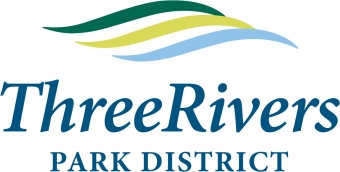- Education Topics
- Achievement Gap
- Alternative Education
- American Education Awards
- Assessment & Evaluation
- Education during COVID-19
- Education Economics
- Education Environment
- Education in the United States during COVID-19
- Education Issues
- Education Policy
- Education Psychology
- Education Scandals and Controversies
- Education Reform
- Education Theory
- Education Worldwide
- Educational Leadership
- Educational Philosophy
- Educational Research
- Educational Technology
- Federal Education Legislation
- Higher Education Worldwide
- Homeless Education
- Homeschooling in the United States
- Migrant Education
- Neglected/Deliquent Students
- Pedagogy
- Sociology of Education
- Special Needs
- National Directories
- After School Programs
- Alternative Schools
- The Arts
- At-Risk Students
- Camps
- Camp Services
- Colleges & Universities
- Counties
- Driving Schools
- Educational Businesses
- Financial Aid
- Higher Education
- International Programs
- Jewish Community Centers
- K-12 Schools
- Language Studies
- Libraries
- Organizations
- Preschools
- Professional Development
- Prom Services
- School Assemblies
- School Districts
- School Field Trips
- School Health
- School Supplies
- School Travel
- School Vendors
- Schools Worldwide
- Special Education
- Special Needs
- Study Abroad
- Teaching Abroad
- Volunteer Programs
- Youth Sports
- For Schools
- Academic Standards
- Assembly Programs
- Blue Ribbon Schools Program
- Educational Accreditation
- Educational Television Channels
- Education in the United States
- History of Education in the United States
- Reading Education in the U.S.
- School Grades
- School Meal Programs
- School Types
- School Uniforms
- Special Education in the United States
- Systems of Formal Education
- U.S. Education Legislation
- For Teachers
- Academic Dishonesty
- Childcare State Licensing Requirements
- Classroom Management
- Education Subjects
- Educational Practices
- Educational Videos
- Interdisciplinary Teaching
- Job and Interview Tips
- Lesson Plans | Grades
- Professional Development
- State Curriculum Standards
- Substitute Teaching
- Teacher Salary
- Teacher Training Programs
- Teaching Methods
- Training and Certification
- For Students
- Academic Competitions
- Admissions Testing
- At-Risk Students
- Career Planning
- College Admissions
- Drivers License
- Educational Programs
- Educational Television
- Educational Videos
- High School Dropouts
- Higher Education
- School Health
- Senior Proms
- Sex Education
- Standardized Testing
- Student Financial Aid
- Student Television Stations
- Summer Learning Loss
Three Rivers Park District

Basic Information
Address: Field Operations Center
French Regional Park
12615 County Road 9
Plymouth, MN 55441
Phone Number: 763.559.6706
Fax Number: 763.557.4943
Additional Information
Causes Served: Environmental Stewardship, environmental education, outdoor recreation
Population Served: All members of the community
Ages for Volunteer: Fourteen and older
Hours of Service: Dependant on project needs/program area
Minimum Hours Required: Dependant on project needs/program area
Days of Service: 7 days a week
Mission Statement:
The mission of Three Rivers Park District is to promote environmental stewardship
through recreation and education in a natural resources-based park system.
Philosophy/Belief Statement:
Three Rivers Park District is a park system in the west suburban Minneapolis/St. Paul metro area of Minnesota. We manage almost 27,000 acres of park reserves, regional parks, regional trails, and special-use facilities. The name "Three Rivers" comes from our parks' geography, situated within the watersheds that flow into three significant rivers to this region: the Mississippi, the Minnesota and the Crow.
With facilities for every season, including picnicking, swimming, play areas, boating, fishing, downhill skiing, snowboarding, golfing, camping, and sledding, Three Rivers Parks is the place for recreation, play and relaxation. We have developed an extensive trail system for hiking, biking, in-line skating, horseback riding, cross-country skiing, and snowshoeing. We also offer program sites for nature, recreation, historic, and farm education. The Park District serves 7 million park guests per year.
Three Rivers Park District is governed by an independent, seven-member Board of Commissioners. Five members of the board are elected from districts in suburban Hennepin County, and two members are appointed by the Hennepin County Board of Commissioners. Board meetings are generally held on the first and third Thursdays of each month at 5:00 PM. Meetings take place in the Board Room of the Park District Administrative Center. View the Board Meeting Schedule.
Natural Resources
The Natural Resources department is responsible for maintaining and protecting all water, wildlife and forest resources within the Park District.
Public Safety
Our Public Safety department is committed to providing a safe and enjoyable experience for all visitors to the Park District.
Accessibility
We work to ensure the accessibility of our parks and trails for all people.
History
The Park District was created in 1957. Since then, it has grown to encompass almost 27,000 acres of parks and trails and is visited by 7 million guests annually. Take a look at a brief overview of our history.
Donations
Your donations allow Three Rivers Park District to expand and enhance its services beyond those provided through taxes and user fees.
Program History:
Minnesota State Legislature established Three Rivers Park District as an independent, special park district in 1957. Our charge is to acquire, develop and maintain large park reserves and regional parks and trails for the citizens of suburban Hennepin County, Scott County, the metro area, and the State.
We work cooperatively with the Metropolitan Parks and Open Space Commission, Metropolitan Counciland State Legislature as one of ten implementing agencies of the Metropolitan Regional Park System. This system of parks was established in 1974 by the Minnesota State Legislature to provide outdoor education, recreational facilities, services, and programs. Collectively, the system serves more than 38 million park guests per year in the seven-county metro.
Additional Information:
A background check is required for those intending to work with minors.




